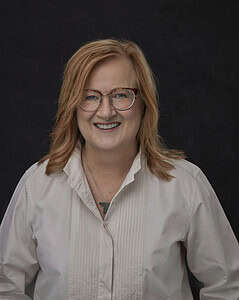2024 Triebel Lecture, 28 November
Secret police files as life writing, or how the Stasi made writers into ‘enemies of the state’
Emerita Professor Alison Lewis FAHA
With the collapse of Eastern European communism an unlikely new resource emerged from the archives of the Cold War: the classified secret police file. Unlike in Australia where ASIO files are declassified after several decades, in Eastern Europe the secret police files of the defunct communist regimes were opened to select members of the public almost immediately. In reunified Germany the files of the Ministry for State Security (Stasi) of its communist twin state, the German Democratic Republic, have been key instruments for lustration and transitional justice as well as personal memory. Above all, they are crucial to truth-telling, indispensable for exposing collaborators and hearing the stories of victims, many of whom were writers and cultural producers. In light of this, researchers have for some time argued for reading secret police files as forms of life writing, as “arresting biographies” (Vatulescu) compiled to arrest suspects or as “hostile biographies” (Lewis). In this lecture I expand on this idea of the files as life writing by exploring dominant technologies of surveillance used by the Stasi against intellectuals such as photographic and human-to-human surveillance. Using a range of examples, I argue that Stasi files were a unique kind of secret political-bureaucratic life writing that not only captured masses of raw data on suspects but also turned the latter, mostly against their will, into likely enemies of the state. The Stasi mobilised cultural techniques of biography and portraiture in their blanket gathering of intelligence but also in their hybristic efforts to “play God” in people’s lives (Wolf Biermann). This is most in evidence in the Stasi’s efforts to script major life events ranging from marital breakdown, heart attacks, professional failure and forced exile. In addition, I undercover how these portraits of state enemies acquired a life of their own through the Stasi’s elaborate administrative procedures, guidelines and record-keeping processes that are testament to the ministry’s quest to be a modern bureaucracy.
 Alison Lewis is Professor Emeritus in German Studies at The University of Melbourne, Australia. She has published extensively on German literature, culture, film and intelligence history. Her most recent books are A State of Secrecy: Stasi Informers and the Surveillance of Culture (Potomac Books 2021), Secret Police Files from the Eastern Bloc: Between Surveillance and Life Writing (with V. Glajar/C. Petrescu) (Camden House 2016) and Cold War Spy Stories from Eastern Europe (with V. Glajar/C. Petrescu) (Potomac Books 2019). For her contribution to promoting German abroad she was awarded the prestigious Friedrich-Gundolf Prize of the German Academy for Language and Literature in 2022.
Alison Lewis is Professor Emeritus in German Studies at The University of Melbourne, Australia. She has published extensively on German literature, culture, film and intelligence history. Her most recent books are A State of Secrecy: Stasi Informers and the Surveillance of Culture (Potomac Books 2021), Secret Police Files from the Eastern Bloc: Between Surveillance and Life Writing (with V. Glajar/C. Petrescu) (Camden House 2016) and Cold War Spy Stories from Eastern Europe (with V. Glajar/C. Petrescu) (Potomac Books 2019). For her contribution to promoting German abroad she was awarded the prestigious Friedrich-Gundolf Prize of the German Academy for Language and Literature in 2022.
The 2024 Triebel Lecture is being held in association with the LCNAU Eighth Biennial Colloquium, ‘Trans/Formation: research and education in languages and cultures’ in Sydney on 27–29 November 2024. For further information and to register click here.
Eleventh Lecture
The place of European languages, languages and multilingualism in Australia before and after COVID: the view from Higher Education
Professor John Hajek FAHA
25 November 2021, online
Tenth lecture
Myth-making for the Empire: Germany’s “model colony” in China (1897-1914) (PDF, 2.7MB)
Professor Yixu Lu FAHA
28 November 2017, Adelaide
Ninth lecture
Transforming university language learning in the 21st century: Is there a special role for European languages?
Professor Anne Pauwels FASSA
26 November 2015
Eighth lecture
Creating a languages future: How Australia can be world best practice in languages’ education (PDF, 92KB)
Professor Glenn Withers AO FASSA
26 September 2011, Melbourne
Seventh lecture
Can we afford to be without multilingualism? (PDF, 408KB)
Professor Peter Høj FTSE
16 February 2009, Melbourne
Sixth lecture
Globalisation, piecework and the future of the humanities
Professor Cary Nelson
18 November 2005, Canberra
Fifth lecture
From de Sade to Stephen King: The literary aesthetics of evil (PDF, 1,114KB)
Professor Anthony Stephens FAHA
7 November 2001, Sydney
Fourth lecture
The perfect match? Information technology and the modern language curriculum (PDF, 994KB)
Dr Marie Thérèse Barbaux-Couper
11 February 1997, Sydney
Third lecture
Interpreting Baldr, the dying god (PDF, 1062KB)
Professor John Lindow
4 September 1993, Sydney
Second lecture
Europe between the languages (PDF, 1033KB)
Professor Gerhard Sauder
21 September 1990, Sydney
Inaugural lecture
Laplace at Hobart Town and Sydney Town in 1831: The humanism of a French naval captain (PDF, 972KB)
Professor Keith V. Sinclair
11 July 1986, Hobart



